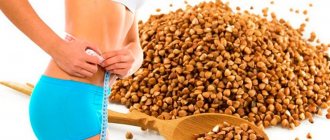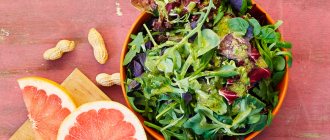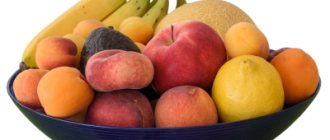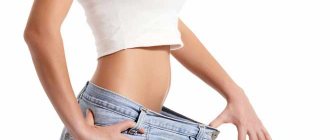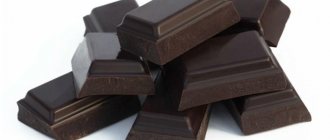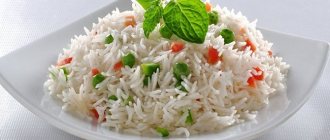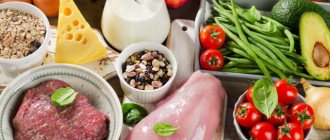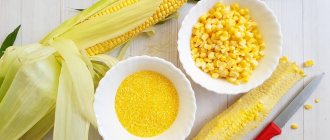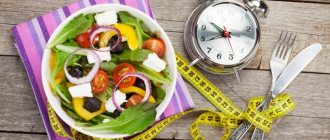Proteins for weight loss
If you decide to stick to a diet (we are talking about sensible diets), then experts recommend ensuring that any new diet contains a sufficient amount of protein. Protein for weight loss is necessary because many diets limit the amount of carbohydrates, and the body needs energy.
Protein foods are considered very effective for weight loss.
You just need to consume them in the right quantity so as not to oversaturate the body, but only to satisfy the feeling of hunger and ensure the presence of muscle tissue.
With strong muscles, a person burns more calories, which leads to faster weight loss. Remember athletes: they don’t have excess fat, but they have strong muscles.
The role of protein in the body
It is difficult to lose weight correctly without the presence of protein foods in your diet. Firstly, because protein speeds up metabolism (using energy for this), and it is this process that promotes fat burning. In addition, protein takes a long time to digest, so it provides a feeling of fullness for several hours. And a well-fed body does not require “snacks”.
Protein foods do not cause a sharp increase in blood sugar levels. And since sugar is normal, it means that it is not stored as fat. Protein is essential to maintain skin elasticity. So, when you start losing weight, your skin, with enough protein in your diet, will not become flabby and saggy.
Proteins are also necessary for weight loss because they perform a transport function. This includes transporting oxygen from the lungs to other tissues, and carbon dioxide, on the contrary, from tissues to the lungs. With a lack of protein, all metabolic processes in the body slow down, which causes irreparable harm to health.
The diet should be healthy, so when choosing it, pay attention to whether the foods you choose contain complete or incomplete proteins. Those that contain essential amino acids are considered complete.
Complete foods include meat, fish, poultry, eggs and dairy products. But plant foods contain incomplete proteins.
About contraindications and additional products for a protein diet
It is wrong to think that eliminating carbohydrates is a healthy way to lose weight. Research has shown that carbohydrates help proteins burn fat. When choosing proteins for weight loss, you must follow the special principles of a protein diet. Eat at least 5 times a day, have your last meal at least 4 hours before bedtime, and the first meal only 30 minutes after getting up.
In addition to proteins, a non-rigid, “normal” diet necessarily requires products with other organic substances.
Nutritionists recommend a portion of food rich in carbohydrates in the first half of the day: 4-6 tablespoons of buckwheat, brown rice or oatmeal. And in the afternoon - vegetables without starch: tomatoes, cabbage, cucumbers, zucchini.
The most important!
Fruits will also not be superfluous: a couple of unsweetened apples or some citrus fruits, but only in the first half of the day.
Like any diet, protein diet has contraindications. These include kidney diseases, digestive system, old age, and obesity. Protein increases blood clotting, which leads to the formation of blood clots.
The basic rule of protein diets is strict adherence to food intake, which is necessary to establish the metabolic process.
No substitution of products is allowed, as it can create extra stress on the body and interfere with getting rid of unnecessary weight.
What herbs help you lose weight? Kiwi and kefir diet
Contraindications to a protein fasting day
You should be aware in advance that protein fasting days also have the other side of the coin in the form of a number of contraindications. This is not only excellent results, delicious dishes and an expanded list of permitted products. If you ignore contraindications, side effects are inevitable, and they can lead to more serious health problems.
Contraindications:
- Allergy;
- pregnancy;
- hypertension;
- cholelithiasis;
- kidney diseases;
- lactation;
- oncology;
- gastrointestinal pathologies;
- old age and adolescence;
- problems with the genitourinary system;
- diabetes;
- power loads.
Side effects:
- Hypertension;
- dizziness;
- constipation;
- intoxication if carried out more often than expected;
- violation of water-salt balance;
- unpleasant belching, heartburn, bloating, nausea, flatulence;
- exacerbation of kidney diseases;
- increased cholesterol;
- state of lethargy, drowsiness, forgetfulness, absent-mindedness, irritability due to lack of glucose.
If protein fasting is difficult for you (you suffer from severe hunger and side effects begin to appear), it makes sense to choose a different method of losing weight - a more gentle and balanced one.
Proteins are very filling
Protein foods perfectly satisfy hunger and prevent its occurrence. Even with a small amount of protein consumption, a person feels full. This is due to several features of protein foods:
- proteins suppress the production of the hunger hormone ghrelin
- promote the production of the satiety hormone – peptide YY
How important this protein feature is for the weight loss process can be understood from a recent study. During the research it was proven that
Increasing protein consumption from 15% to 30% of the daily diet allows women who are overweight to eat 441 fewer calories per day without any forced food restriction.
This is what concerns the real desire to eat, that is, a state when a person becomes weaker and needs support with nutrients. Separately, it should be said about the painful desire for snacks, both day and night.
This desire differs from true hunger in that it has nothing to do with the need to introduce nutrients into the body. In this case, we are talking only about the psychological desire to eat, which in essence is no different from the desire to smoke or drink alcohol.
So, it has been established that the inclusion of additional amounts of protein in the diet can very significantly reduce the craving for unmotivated meals.
For example, in one experiment, overweight men, after increasing their daily protein intake by 25%, showed a 60% reduction in snacking cravings during the day and a 50% reduction in snacking cravings at night.
It is believed that this effect of proteins is associated with their ability to normalize the functioning of dopamine, a brain neurotransmitter involved in the formation of various addictions.
The effectiveness of a protein fasting day
The basis for the effectiveness of a fasting day can be attributed to the fact that protein perfectly saturates. This diet is very easy to tolerate, because there is practically no feeling of hunger. They help remove excess fluid from the body: the fat cell, freed from moisture, shrinks, decreases in size and the person looks much slimmer.
Protein products trigger weight loss processes by forcing the body to draw energy from stored “strategic reserves.”
And finally, protein itself takes quite a long time to digest, which costs additional calories. The main thing is to organize your diet wisely and make your diet balanced.
Do you need protein when losing weight?
Wow, so many questions! Let's go in order.
As I understand it, protein meant sports nutrition, and not just proteins obtained from food? Hope so. That’s why I’m writing about protein supplements and shakes.
So. Do you need protein for those who are losing weight? Yes and no.
Depending on how a person eats while losing weight, if he has the opportunity to eat the required amount of protein in order to lose fat and not muscle mass, then he doesn’t have to eat protein.
If you can’t eat the required amount, you can add protein. Just don’t forget that sports nutrition also contains calories. Let's say a serving of protein shake (dry mix) is 40 grams. - This is approximately 150 calories.
Is protein necessary for those who are dry? Definitely yes. Since it is very difficult to eat in its natural form, especially for those whose initial mass is not small. During drying, you need to get 2-4 grams of protein per kilogram of weight per day. What if the athlete’s initial weight is about 100? You will either have to eat chicken fillet without stopping all day, or introduce protein supplements into your diet.
Should you take protein if you're losing weight? Here, I think, the answer is the same as to the first question.
Note!
I can also remind you that protein shakes are sweet, so consuming them can curb the craving for sweets for those who follow a strict diet but have a big sweet tooth.
So if there is an alternative between a chocolate bar before bed or a protein shake - I'm for protein!
Is it worth taking protein if you are overweight? To ensure proper compliance with BJU in food, you can.
You definitely shouldn’t use it to lose weight. Protein allows you to build muscle mass, while when losing weight you need to burn fat. To lose weight, the most important thing is to balance your meals, calories, cardio and strength training.
Approximate daily dietary intake
Creating the right diet for a protein diet is quite simple, since the list of products is varied and the rules for creating a menu are simple.
Be sure to read: How to properly and harmlessly lose weight for a woman after 35 years at home?
For example, the composition of a diet for one day may look like this:
- A portion of buckwheat porridge, a boiled chicken egg, weak tea;
- A small cup of cottage cheese with berries, unsweetened compote;
- Chicken breast cutlets cooked in a double boiler, vegetable side dish. Tea and protein bar;
- Two oranges and sugar-free yogurt;
- Grilled cod steaks, vegetable salad with a spoon of olive oil.
As can be seen from the example, the diet is quite nutritious, tasty and satisfying. It is recommended to consume food by chewing thoroughly and slowly. The amount of salt must be minimized.
The drinking regime should be adjusted at your own discretion; some nutritionists advise not to drink one or two hours after the next meal.
Protein for weight loss without training
In the process of losing fat mass, the body requires an adequate supply of protein more than ever. The main thing here is to properly build your daily diet. But does protein help you lose weight? - Let's figure it out.
People who want to lose weight should take care not only of burning body fat, but also maintaining muscle (they should not be burned along with fat). To keep muscle fibers from breaking down, they require exercise and protein. So, systematic exercise and a proper diet with a sufficient amount of protein help the body get rid of excess weight and fully maintain muscle volume.
How to build your diet? – First of all, remember that sports supplements should not exceed the amount of regular food. Consumption of fats and fast carbohydrates should be minimized, and protein intake, on the contrary, should be increased. The ideal ratio is 1-1.5 g of protein per 1 kg of weight. In this case, it is better to consume a protein shake instead of one of the meals, or in the evening. One serving allows you to quench your appetite for a long time and provide the body with important amino acids.
Taking protein without working out to lose weight produces results, but not the ones you expect. After all, in the process you can lose not only fat, but also muscle mass. Remember that proper weight loss cannot be achieved without a certain amount of protein and exercise.
Protein is an important building block of our muscles, but without training it does not give any results, both for gaining muscle mass and for losing weight!
Advantages and disadvantages
| pros | Minuses |
|
|
Protein for weight loss: why is it needed and how does it work?
If you want to lose extra pounds, there are a lot of details to consider. After all, in the process of fighting weight there are no trifles. For example, protein is very important for weight loss! Therefore, when creating your menu and adjusting your diet, make sure that it contains enough protein-rich foods. Protein is extremely important for weight loss.
Protein for weight loss: why it is needed and how it works
A complete diet of your diet and control of food consumption according to the KBZHU will significantly improve your metabolism and help in achieving a beautiful body.
This food will allow you to:
- quickly get rid of the feeling of hunger;
- feel full;
- get rid of the desire to eat something sweet.
What is extremely necessary during the period of struggle with extra pounds is that you will not strive to eat anything else, especially buns, pastries, and cakes.
Protein is also important for weight loss because it fills the body with strength and energy necessary for full life and exercise.
The greatest value that proteins provide for weight loss is that they cannot be converted into fat (for example, as carbohydrates do), but simply nourish muscle tissue. And in the process of playing sports, muscles ensure complete burning of calories.
Why shouldn't you give up proteins when losing weight?
Proteins are very important when losing weight, since during a diet the total calorie content of foods is significantly reduced, and therefore in the human body there is a change in all processes associated with both the synthesis of proteins and the renewal of tissues and cells.
First, those organs in which cell renewal occurs most quickly will suffer from this - these include:
- Bone marrow;
- intestines;
- pancreas.
As you can see, when losing weight you can’t do without protein, but it’s also important how exactly you consume it
Protein for weight loss: which one to choose?
When compiling a diet, you must remember that approximately 60% of all proteins should be of animal origin. They are absorbed by the body much better than proteins of plant origin.
However, when giving preference to animal proteins, you need to remember that it should be, for example, not pork, but chicken. That is, more dietary and low-fat products.
Note!
In order for proteins to be better absorbed, in addition to cereals, the diet must contain as many vegetables as possible. After all, they contain an abundance of minerals, vitamins, and fiber, which helps increase the digestibility of food.
By adhering to these recommendations, you will be able to eliminate the feeling of hunger that constantly haunts a person losing weight, and the process of getting rid of extra pounds will proceed without any discomfort.
How much protein should you consume to lose weight?
The exact amount of protein that should be consumed daily when losing weight directly depends on several factors:
- gender;
- age;
- weight;
- human activity.
During the period of weight loss, you should ensure the maximum possible balanced diet based on KBZHU. With such a diet, for every 1000 kilocalories there should be about 30 grams of protein.
If we talk about the relationship between the amount of protein consumed daily and a person’s weight, then in this case, for every kilogram of body weight there should be from 1 to 2 grams of protein.
For example, for women struggling with excess weight, the norm is 1-1.2 grams of protein per day for every kilogram of body weight. However, if a girl plays sports and leads an active lifestyle, the norm needs to be increased. You also need to increase the amount of protein in your food in the following situations:
- during various diseases;
- in case of stress, nervous tension;
- during critical days;
- in the cold season.
In addition to the daily intake of proteins when losing weight, you need to remember about such an indicator as one-time consumption - so, at each meal you do not need to “eat” more than 35 grams of proteins. Since everything above this figure will still not be absorbed by the body.
Namaste.
Reviews and results
Like most types of diets, protein also involves the consumption of protein products of animal origin together with low-carbohydrate plant foods (vegetables).
Protein meat products satisfy hunger and provide a long-lasting feeling of fullness - this entails a natural reduction in caloric intake. In combination with physical activity, a negative energy balance is obtained and, accordingly, a decrease in fat mass. A sufficient amount of protein along with physical activity allows you to preserve and build muscle tissue. Therefore, this type of diet is used by athletes.
Many foreign experts advocate reducing the quota of proteins and fats and increasing carbohydrates in the diet. However, research confirms that a low-carbohydrate protein eating style is more effective than a high-carbohydrate diet for weight loss. In addition, it improves tissue sensitivity to insulin , reducing the risk of diabetes. Reviews of the results of such nutrition are mostly positive.
- “... This style of nutrition suits me, since I go to training every day. I lean on low-fat cottage cheese, chicken, fish, supplementing them with salads. I boil or bake chicken breast for variety, sometimes I make it with cheese, spinach and spices. It turns out very tasty, and when cold I use it for snacks at work. I eat an omelet with vegetables every day, and in order to prevent cholesterol from rising, I often make protein omelettes. I don’t feel hungry with this diet, my body is transformed, gaining definition, and I’ve also lost 5 kg”;
- “... A fitness trainer recommended it for weight loss. Personally, it’s a little hard for me to sit on it, since I like to snack on something sweet, at least a pear, grapes or dried fruit. But none of this is possible. I sat on it for 10 days, lost 4 kg - good for a start. Then I switched to a less strict one - it can contain fruits, dried fruits and nuts. This one suits me better and I think that the weight, combined with exercise, will gradually melt, if not, then I will have to reduce calories again”;
- “... The food itself is not very varied - only meat, vegetables and eggs. In addition, it is more expensive compared to the buckwheat and oatmeal diet. But, after reading the reviews and opinions of experts in this diet, I decided to try it. I immediately took a fitness membership. It was not difficult to sit on it and I survived 10 days normally. They can’t say more, because there’s a lot of protein, and I’m still not an athlete and I don’t have heavy loads. Result - 4.5 kg. I think this is very good. Now I’m trying to eat right, exercise moderately, and if necessary, in five months I’ll try again.”
How much protein do you need per day?
According to common dietary recommendations:
- The average man (average height, average weight), leading a sedentary lifestyle, should consume at least 56 grams of protein per day (preferably 91 grams)
- average woman – 46-75 grams
Obviously, singling out this incomprehensible average person is not entirely correct. And the need for proteins depends on many indicators. So it is not the body mass itself, as such, that plays a big role, but the percentage of muscles in this mass.
So for people who play sports, do physical work, or just walk a lot, their protein intake should be higher. In this case, the calculation is based on body weight: 1.2-1.4 grams of protein per kilogram of human weight.
Older people also need more protein than middle-aged people: 1.0-1.4 grams per kilogram of body weight.
When making all these calculations, it is important to understand the following. By grams of protein we do not mean the mass of food at all.
Namely, the mass of a pure food element - protein, the weight of which will be significantly less than the weight of the food itself.
By grams of protein we do not mean the mass of food. Namely, the mass of a pure food element - protein, the weight of which will be significantly less than the weight of the food itself.
That is, if you ate 100 grams of beef, you ate no more than 27 grams of protein, or even less.
Therefore, it is very important to know not only which foods contain protein, but how much of it is there?
Diet menu for 10 days
The protein diet menu options for men and women are not particularly different. In fact, the whole difference lies in the amount of food consumed per day.
Calculate the quantity using the formulas:
- For men, the ratio of proteins and carbohydrates per kilogram of weight is 2.5 grams and 1 – 3 grams, respectively.
- For women, the ratio of proteins and carbohydrates per kilogram of weight is 2 grams and 0.5 - 1.5 grams, respectively.
You just need to calculate the amount of necessary substances based on your body weight and correlate them with our protein diet menu table for 10 days.
| breakfast | lunch | dinner | afternoon tea | dinner | |
| 1st day | protein oatmeal (see recipe below) | steamed turkey fillet cutlet + stewed vegetables with herbs | baked salmon + lemon slice + green salad | boiled chicken breast + cauliflower in egg (see recipe below) | beef broth + soft-boiled egg + mushrooms stewed with herbs |
| 2nd day | veal + blanched spinach + cucumber | watercress cream soup (see recipe below) | baked pork, pre-marinated in yogurt with spices + stewed vegetables | asparagus stewed in sour cream with garlic and herbs + a glass of low-fat kefir | boiled white fish fillet with lemon juice and spices + cabbage salad with herbs and olive oil |
| 3rd day | chicken cutlet with tofu cheese, baked in the oven + a glass of freshly squeezed vegetable juice + green salad | any grilled fish + salad of tomatoes, cucumbers and cabbage, dressed with olive oil | braised pork with celery (see recipe below) | homemade protein bar | low-fat cottage cheese + sour cream + herbs |
| 4th day | two tablespoons of boiled brown rice + light salad | creamy mushroom soup with spinach (see recipe below) | beef with artichokes (see recipe below) | salmon steak + light salad dressed with lemon juice and olive oil | seafood cocktail |
| 5th day | two protein brownies (see recipe below) + fresh citrus juice | salad of tomatoes, celery, avocado + boiled beans, dressed with olive oil and lemon juice | grilled pork + stewed zucchini with herbs, yogurt and garlic | veal + stewed broccoli and cauliflower | chicken broth + light salad |
| 6th day | omelette of whites and one yolk + green salad | low-fat cottage cheese + nuts and berries | stewed cabbage + baked turkey fillet | protein shake with skim milk | boiled beef + avocado salad with celery |
| 7th day | protein oatmeal + glass of fresh vegetable juice | grilled vegetables + boiled white fish | any bird baked in foil with vegetables | baked eggplants _ low-fat cottage cheese with herbs and garlic, seasoned with low-fat yogurt | cauliflower in egg + meat broth |
| 8th day | two soft-boiled eggs + steamed turkey cutlet + greens | salad of boiled lamb meat with tomatoes, tofu cheese and herbs, dressed with olive oil and lemon juice | fried chicken fillet without oil + zucchini and lettuce | salmon baked on an onion bed + green salad | low-fat cottage cheese with herbs and low-fat yogurt |
| 9th day | two tablespoons of boiled brown rice + asparagus salad with herbs | protein ice cream (see recipe below) | lean steak + cucumber salad with celery | protein shake with skim milk | mussel and tomato salad dressed with olive oil and lemon juice |
| 10th day | salad of eggs, herbs and low-fat yogurt + unsweetened tea or coffee | pumpkin soup | grilled veal + Chinese cabbage salad with tomatoes, dressed with olive oil | stewed pork with celery | Greek salad without olives |
How to properly take protein for girls to lose weight
The minimum protein intake for girls during active strength training is 2 g per 1 kg of weight. For example, if you weigh 60 kg, the minimum norm is 120 g. You don’t need to consume more than 2.5 g of protein per 1 kg of weight - it simply won’t be absorbed. In addition, it will put excessive stress on the kidneys and liver. If you do not exercise, then try to maintain protein at least at the level of 1.5-1.7 g per 1 kg of weight.
How much protein is contained in popular products for losing weight:
- Half chicken breast (150g): 45g protein
- Serving of cottage cheese 3% (200 g): 32 g protein
- Buckwheat serving (100 g): 13 g protein
- 2 eggs (150 g): 19.5 g protein
How to determine the amount of protein in a protein? Very simple, this information is indicated on the packaging. For example, whey isolate contains 90% protein. Accordingly, if the volume of one stingy is 30 g, then it contains 27 g of protein (30 × 0.9). This means that if you consume 2 scoops of protein per day, you will get 54 g of protein.
Please note that protein content and scoop volume may vary depending on the type and manufacturer. Always read the packaging information
Protein intake for girls depending on the time of day:
- It is better to drink whey or egg protein in the morning
- Instead of meals (or between meals), it is better to drink complex, soy or egg protein
- Before training (an hour) and after training, it is better to drink whey protein
- It is better to drink casein protein at night
10 Protein Tips for Girls:
- The body will not be able to absorb more than 30-35 g of protein in one meal. Therefore, if you need to consume 60 g of protein, then divide it into two 30 g doses.
- Research shows that the higher the intensity of your workout and the more muscles you use during exercise, the more protein you need to consume post-workout. For example, after a split workout (by muscle group), 20-25 g of protein is enough, after a high-volume workout for the whole body - up to 40 g.
- Protein should be taken not only on training days, but also on rest days. For example, you work out 3 times a week, but if you want progress in your training and muscles, then you need to take protein every day. Choose the dosage based on the total amount of protein for the current day.
- If you get your protein intake from food and without protein, then to maintain muscles and good shape, you can leave one shake per day - after training. Or divide this intake into two times - before and after training.
- While taking protein, be sure to drink at least 2 liters of water per day to avoid gastrointestinal problems and for better protein absorption, and also eat fiber (for example, bran).
- Be sure to include protein in your overall caloric intake. Don't forget to count the total amount of protein you consume, taking into account the protein shake and regular foods that also contain protein.
- If you don't like protein shakes, you can add protein to ready-made porridge or make smoothies with fruits or berries.
- Girls love to use protein as an ingredient in ready-made dishes. For example, many people prepare protein bars or protein cookies for a diet snack.
- If you decide to take protein, you shouldn’t replace all your main meals with it! Protein for girls is still a supplement; your menu should remain balanced.
- The success of building a beautiful body depends not only on protein, but also on the overall literacy of the diet, the quality of exercise, daily routine and genetic characteristics. Protein does not guarantee girls the construction of a toned, sculpted body, although it is a good assistant in achieving the goal.
Do Protein Shakes Work? Gaining muscle mass and losing weight
We include products that we think will be useful to our readers. If you make a purchase through links on this page, we may receive a small commission. Here's our process.
People drink protein shakes for a variety of reasons, including muscle gain, weight loss, and injury recovery.
While many foods are high in protein—eg eggs, meat, poultry, milk and legumes—protein shakes and powders have become a popular high-quality source of this nutrient.
If you're wondering whether these smoothies will give you the results you want, you're not alone.
This article is about the effectiveness of protein shakes for gaining muscle mass and losing weight.
Protein shakes are a dietary supplement
According to the Food and Drug Administration (FDA), dietary supplements are products that contain dietary ingredients such as vitamins, minerals, amino acids, and herbs (1).
In this case, protein shakes contain amino acids, also known as the building blocks of proteins.
Dietary supplements come in many forms, from powders to capsules and liquids. While you can find ready-to-drink protein shakes in liquid form, you can also purchase protein supplements in powder form.
Many types of powdered protein supplements are available from animal or plant sources.
For example, the most popular animal-based powders are whey and casein, which are usually derived from cow's milk. However, if you are allergic to milk, egg white may be an appropriate choice.
When it comes to popular plant proteins, you can choose soy, pea, hemp or rice protein.
Finally, as their name suggests, dietary supplements are designed to help you complete or improve your diet.
In general, protein shakes can come in handy when you don't have high-quality protein sources available or you simply can't meet your daily protein needs through food alone.
Summary
Protein shakes are a dietary supplement. They can help supplement or enhance your diet if you need an extra boost to reach your daily protein goal.
Benefits for Gaining Muscle Mass
Protein shakes were originally consumed by athletes and gym enthusiasts who wanted to increase their muscle mass and improve their performance.
In fact, combining protein shakes with resistance training can promote muscle growth and improve physical performance and recovery (2, 3, 4, 5).
This is because resistance training stimulates muscle protein synthesis, as does an increased intake of high-quality protein (6, 7).
As mentioned earlier, protein shakes contain amino acids that are easily absorbed by your body. Researchers believe that their consumption increases amino acid levels in the bloodstream, which in turn causes a greater response to muscle synthesis (8, 9, 10).
What's more, research shows that protein shakes help with retention and can help increase muscle mass, even if you're on a weight-loss diet (11, 12).
For example, one study of 40 men found that people on a high-protein diet achieved through protein supplements lost more fat mass and increased their muscle mass when they added strength and cardio training, compared to a control group (11). ).
Similarly, another study of 40 healthy adults found that whey protein supplementation reduced the expected decline in muscle protein synthesis following weight loss (12).
So, protein shakes can help you achieve your fitness goals, whether you want to lose fat or gain muscle.
Summary
Protein shakes help increase muscle mass and improve performance and recovery. They also prevent muscle loss and may even help increase muscle mass while losing weight.
Protein shakes and weight loss
High-protein diets activate various pathways that promote weight loss, and drinking protein shakes can help you increase your daily protein intake (13).
Increases satiety
Multiple hormones are involved in the stimulation and control of appetite, including peptide tyrosine-tyrosine (PYY), glucagon-like peptide 1 (GLP-1), and ghrelin. Protein seems to influence their production.
Both PYY and GLP-1 are hunger-reducing hormones, and studies show that a high-protein diet increases levels of each after a meal (14, 15, 16, 17, 18).
PYY and GLP-1 reduce appetite, and GLP-1 also delays gastric emptying. Thus, both hormones cause increased feelings of satiety (19).
What's more, evidence suggests that protein may also reduce levels of ghrelin, an appetite-stimulating hormone (20, 21).
Although most studies use food, these appetite control effects have also been observed in supplement testing (22).
For example, one study of 18 women found that drinking a whey protein drink reduced ghrelin levels and increased PYY and GLP-1 levels compared to the control group (23).
Increases metabolism
High protein diets also increase energy expenditure—the number of calories you burn—in two different ways.
First, your body burns more calories by metabolizing protein than carbohydrates or fats. This metabolic response to food is known as diet-induced thermogenesis (DIT) (24, 25).
DIT indicates the amount of energy required to metabolize each nutrient relative to the number of calories consumed. Its values for protein range from 15–30%, as opposed to 5–10% for carbohydrates and 0–3% for fat (24).
Second, a high-protein diet stimulates gluconeogenesis, the process of producing glucose from protein or fat in the absence of carbohydrates, which is thought to burn excess calories in the process (26, 27).
In fact, one study of 10 healthy men found higher energy expenditure with a high protein diet compared to a control condition, determining that 42% of the increase was due to gluconeogenesis (28).
Therefore, increasing your protein intake through protein shakes and powders can help you reap these metabolic benefits.
May Help You Lose Belly Fat
High-protein diets are known to promote fat oxidation and fat loss (29, 30, 31, 32).
Evidence suggests that increasing protein intake from high-quality sources, such as protein shakes, may be associated with loss of midsection fat, also called visceral or abdominal fat (33, 34).
It is especially important to get rid of fat around the waist. Increased visceral or abdominal fat causes chronic inflammation associated with insulin resistance and heart disease (33).
In one study of 37 women, those who consumed an additional 40 grams of whey protein per day saw a small decrease in abdominal fat compared to those who received a lower quality protein supplement (33).
Likewise, a 23-week study found that those who consumed an additional 56 grams of whey protein per day had 4 pounds (1.8 kg) less body weight and 5 pounds (2.3 kg) less body fat. compared to the control group. group (34).
Summary
Consuming protein shakes and powders as part of a high-protein diet may help control appetite, increase calorie burn, and lose belly fat, indicating that they may be effective for weight loss.
Losing weight requires more than a high protein intake.
Protein shakes and powders are a healthy addition to your weight loss journey. However, to lose weight, you can do more than just increase your protein intake.
If you want to lose weight, you need to induce a negative energy balance, meaning you must burn more calories than you consume. This is also known as a calorie deficit (24).
There are three different ways to achieve a calorie deficit—by either consuming fewer calories, burning more calories by increasing physical activity, or a combination of both (35, 36, 37).
Although a higher protein intake allows you to eat fewer calories without feeling hungry, protein still contains calories that contribute to your daily value—4 calories per gram to be exact.
Thus, overeating can put you out of a calorie deficit and even contribute to a calorie excess, which will either hinder your weight loss efforts or lead to weight gain (38).
For example, one study found that people who ate a high-protein diet that increased their caloric intake by 40% gained both body weight and fat (39).
So, even though protein shakes are a useful tool for weight loss, you still need to be mindful of the calorie in vs. calorie out ratio.
Since increasing physical activity helps increase the number of calories you burn, you can try either weight training or aerobic exercise (cardio), which includes walking, jogging, swimming, dancing and cycling.
However, research shows that a combination of both is the most effective way to lose weight, as cardio helps achieve greater weight loss and resistance training helps maintain or improve muscle mass (40, 41).
Summary
Although a high protein diet is great for weight loss, overeating protein can prevent you from achieving your desired results.
Protein shakes aren't the only way to stick to a high-protein diet
High-protein diets are characterized by daily protein intake exceeding the recommended dietary allowance (RDA) of 0.4 grams per pound (0.8 grams per kg) (24).
Those who struggle to reach this amount through food can turn to protein shakes.
However, if you can meet your daily protein needs from natural sources, protein shakes may not be necessary.
Some high-quality protein foods include eggs, milk, meat, fish, poultry and soy.
Plus, protein shakes tend to be expensive, so if you're on a budget, eating animal or plant-based protein may be more appropriate.
Summary
If you can meet your daily protein requirement by eating enough high-quality protein foods, you may not need to drink protein shakes.
Bottom line
High protein diets are a great strategy for losing weight and building muscle, and protein shakes make it easier to increase your protein intake.
Because they can help control your appetite, boost your metabolism, and get rid of belly fat, protein shakes can be effective for weight loss. Additionally, when combined with resistance training, they help build muscle mass and improve performance.
However, if you eat enough high-quality protein foods throughout the day, taking a protein supplement may not be necessary.
Also keep in mind that overeating protein can lead to weight gain.
If you're interested in trying protein shakes, you can find a variety of animal and plant-based protein powders in stores and online that fit your needs.
.
List of protein foods for weight loss
So, let's find out what these protein foods are.
- 1. Eggs are the number one product for proper protein nutrition when losing weight. One egg contains 6 grams of protein (a very large one has 8).
- 2. Chicken breast. This is probably one of the most popular protein products for normalizing weight. That is why most people who are losing weight want to know how many grams of protein are contained in 100 grams of chicken breast. Typically this amount is 23 grams.
- 3. Turkey breast. This product is similar to chicken breast - 24 grams of protein per 100 grams of product.
- 4. Lean beef. Another popular source of protein. 100 grams of lean beef contains 26 grams of pure protein.
- 5. Fish. There are many varieties of fish, but on average we can say that 100 grams of fish equals 22 grams of protein.
- 6. Shrimp – 21 grams per 100.
- 7. Nuts. Of course, different types of nuts will contain slightly different amounts of pure protein, but on average it is 21 per 100. Peanuts, which are botanically classified as legumes and not nuts, contain almost 25 grams.
- 8. Pumpkin seeds. They boast almost 18 grams of pure protein per 100 grams of peeled seeds.
- 9. Cottage cheese: on average 12 grams per 100.
- 10. Natural yogurt: out of 100 grams of this product, 10 is pure protein.
- 11. Milk. One glass of milk contains 8 grams of protein.
- 12. Legumes. There is an opinion that legumes contain a lot of protein. A lot, but not very much. So in 100 grams of ready-made beans or peas there are only 8 grams.
- 13. Cereals. Most grains can provide 5-7 grams of pure protein per 1 cup of already cooked grain.
- 14. Vegetables. For most types of this product, the amount of pure protein will be about 3 grams per 100.
The amount of pure protein is indicated per 100 grams or per 1 piece of product that has already undergone culinary processing.
conclusions
1. Proteins must be an integral part of a diet for weight loss, as they not only ensure rapid weight loss, but also make it possible to avoid the negative consequences of rapid weight loss.
2. Only products of animal origin can provide the body with a normal amount of protein, but not vegetables or even beans.
3. The amount of protein needed by each individual person may be different, but it is no less than 56 grams for a man and 46 grams for a woman.
4. By grams of protein we mean the mass of the pure protein component itself, and not the mass of a serving of food, which is much larger.
5
Another important compound found in animal foods that is essential for maintaining normal weight and health is conjugated linoleic acid (CLA).
Fully or partially limited products
- All kinds of sweets (honey, chocolate, jam, sweets, sweet drinks, jam, confiture, jams) and sweet fruits.
- Potatoes, corn, boiled carrots, boiled beets.
- Pickled vegetables and mushrooms, sauerkraut due to the salt content.
- Legumes.
- Nuts, seeds.
- Cereals and pasta, dough products.
- Dairy products, sugar and sugar substitutes.
- Butter and other animal fats, fried foods.
- Canned food and semi-finished products.
- Animal liver and pates.
- Ketchup, mayonnaise.
Table of prohibited products
| Proteins, g | Fats, g | Carbohydrates, g | Calories, kcal | |
Vegetables and greens | ||||
| vegetables legumes | 9,1 | 1,6 | 27,0 | 168 |
| sauerkraut | 1,8 | 0,1 | 4,4 | 19 |
| potato | 2,0 | 0,4 | 18,1 | 80 |
| boiled carrots | 0,8 | 0,3 | 5,0 | 25 |
| canned cucumbers | 2,8 | 0,0 | 1,3 | 16 |
| boiled beets | 1,8 | 0,0 | 10,8 | 49 |
| canned tomatoes | 1,1 | 0,1 | 3,5 | 20 |
| horseradish | 3,2 | 0,4 | 10,5 | 56 |
Fruits | ||||
| fruits | 0,8 | 0,3 | 11,5 | 56 |
Snacks | ||||
| potato chips | 5,5 | 30,0 | 53,0 | 520 |
Cereals and porridges | ||||
| corn grits | 8,3 | 1,2 | 75,0 | 337 |
| pearl barley | 9,3 | 1,1 | 73,7 | 320 |
| wheat bran | 15,1 | 3,8 | 53,6 | 296 |
| millet cereal | 11,5 | 3,3 | 69,3 | 348 |
| white rice | 6,7 | 0,7 | 78,9 | 344 |
| barley grits | 10,4 | 1,3 | 66,3 | 324 |
Flour and pasta | ||||
| pasta | 10,4 | 1,1 | 69,7 | 337 |
| pancakes | 6,3 | 7,3 | 51,4 | 294 |
Bakery products | ||||
| buns | 7,2 | 6,2 | 51,0 | 317 |
| wheat bread | 8,1 | 1,0 | 48,8 | 242 |
Confectionery | ||||
| jam | 0,3 | 0,2 | 63,0 | 263 |
| jam | 0,3 | 0,1 | 56,0 | 238 |
| candies | 4,3 | 19,8 | 67,5 | 453 |
| jam | 0,4 | 0,2 | 58,6 | 233 |
Ice cream | ||||
| ice cream | 3,7 | 6,9 | 22,1 | 189 |
Cakes | ||||
| cake | 4,4 | 23,4 | 45,2 | 407 |
Raw materials and seasonings | ||||
| mustard | 5,7 | 6,4 | 22,0 | 162 |
| ketchup | 1,8 | 1,0 | 22,2 | 93 |
| mayonnaise | 2,4 | 67,0 | 3,9 | 627 |
| ground black pepper | 10,4 | 3,3 | 38,7 | 251 |
| sugar | 0,0 | 0,0 | 99,7 | 398 |
Dairy | ||||
| condensed milk | 7,2 | 8,5 | 56,0 | 320 |
Meat products | ||||
| pork | 16,0 | 21,6 | 0,0 | 259 |
| bacon | 23,0 | 45,0 | 0,0 | 500 |
| ham | 22,6 | 20,9 | 0,0 | 279 |
Sausages | ||||
| dry-cured sausage | 24,1 | 38,3 | 1,0 | 455 |
| smoked sausage | 9,9 | 63,2 | 0,3 | 608 |
| sausages | 10,1 | 31,6 | 1,9 | 332 |
| sausages | 12,3 | 25,3 | 0,0 | 277 |
Bird | ||||
| smoked chicken | 27,5 | 8,2 | 0,0 | 184 |
| duck | 16,5 | 61,2 | 0,0 | 346 |
| smoked duck | 19,0 | 28,4 | 0,0 | 337 |
| goose | 16,1 | 33,3 | 0,0 | 364 |
Fish and seafood | ||||
| dried fish | 17,5 | 4,6 | 0,0 | 139 |
| smoked fish | 26,8 | 9,9 | 0,0 | 196 |
| squid | 21,2 | 2,8 | 2,0 | 122 |
| shrimps | 22,0 | 1,0 | 0,0 | 97 |
| mussels | 9,1 | 1,5 | 0,0 | 50 |
| canned fish | 17,5 | 2,0 | 0,0 | 88 |
Oils and fats | ||||
| butter | 0,5 | 82,5 | 0,8 | 748 |
| animal fat | 0,0 | 99,7 | 0,0 | 897 |
| cooking fat | 0,0 | 99,7 | 0,0 | 897 |
Alcoholic drinks | ||||
| white dessert wine 16% | 0,5 | 0,0 | 16,0 | 153 |
| vodka | 0,0 | 0,0 | 0,1 | 235 |
| cognac | 0,0 | 0,0 | 0,1 | 239 |
| beer | 0,3 | 0,0 | 4,6 | 42 |
Non-alcoholic drinks | ||||
| bread kvass | 0,2 | 0,0 | 5,2 | 27 |
| cola | 0,0 | 0,0 | 10,4 | 42 |
| Pepsi | 0,0 | 0,0 | 8,7 | 38 |
| sprite | 0,1 | 0,0 | 7,0 | 29 |
| * data is per 100 g of product | ||||
Casein protein or calcium caseinate
Obtained during the curdling process of milk. Has less biological value than whey protein. But due to the fact that it takes longer to be digested by the body, its use leads to an interesting effect:
- the feeling of hunger is satisfied, the desire to “chew something” is reduced;
- The concentration of essential amino acids in the blood becomes higher and lasts five times longer.
If you are allergic to other types of proteins, then calcium caseinate is a real godsend for you. Casein protein can also be consumed before bed if you suffer from nighttime appetite attacks.
Mechanism of action
Proteins are responsible for the quality of bone and muscle tissue, teeth, hair, nails, transport oxygen into cells, and promote the synthesis of certain hormones and enzymes. They contain 22 amino acids important for humans, of which 9 are essential (not produced by the body) - these are:
- phenylalanine;
- methionine;
- lysine;
- leucine;
- valine;
- histidine;
- tryptophan;
- isoleucine;
- threonine
The listed organic compounds are found only in animal proteins, so plant proteins will not completely replace them. Proteins from meat, fish, and eggs are also absorbed better than from soy or dairy products, so the importance of animal food for humans is higher. A high-protein diet for weight loss is effective due to the following properties:
- increasing the number of calories burned through accelerating metabolism (acceleration by up to 30%);
- activation of the production of the hormone leptin, which creates a feeling of satiety, simultaneously with the suppression of the appetite hormone - ghrelin;
- launching a state of ketosis - the body, due to a shortage of carbohydrates, begins to use fat deposits for energy (muscles are not affected, since they are fueled by protein);
- decreased insulin secretion due to a decrease in the amount of carbohydrates, which prevents new fat reserves from appearing.
Proteins build muscle
Muscle is a protein formation, and therefore it is obvious that without a significant intake of proteins into the body, it is not possible to build muscle.
At the same time, the need to increase muscle mass is faced not only by young people who want to pump up their biceps, but also by all those who are on a diet to lose weight.
Very often, losing excess weight is fraught with the loss of not at all extra muscles. To prevent this from happening, any diet must ensure that the body receives a protein component.
Particular attention should be paid to the benefits of protein for maintaining muscles in good working condition in older people. With age, sarcopenia begins - the process of reducing muscle mass. Sarcopenia is inevitable, but it can be significantly slowed by providing the body with additional protein.
And again, this is especially important for older people who are losing weight, for whom the process of muscle loss is proceeding by leaps and bounds, since the side effect of losing excess weight is added to the natural age-related changes. By the way, another way to increase the endurance of muscle tissue is to take dietary supplements with creatine
Therefore, if you have already encountered muscle weakness in your life, be sure to read about what creatine monohydrate is and how to take it correctly.
By the way, another way to increase the endurance of muscle tissue is to take dietary supplements with creatine. Therefore, if you have already encountered muscle weakness in your life, be sure to read about what creatine monohydrate is and how to take it correctly.
Contraindications
Unfortunately, an effective protein diet may not be suitable for everyone, as it has a number of contraindications and limitations. Among the main ones:
- Pathologies of the gastrointestinal tract;
- Kidney diseases;
- Liver dysfunction;
- Diabetes;
- Osteoporosis;
- Pathologies of the cardiovascular system;
- Pregnancy and breastfeeding.
High protein foods contribute to blood thickening, so it is important to monitor your overall health, as well as your blood pressure and pulse. It is strongly recommended to consult a physician before use.
The need for protein for weight loss
The need to consume protein while fighting extra pounds is dictated by the following:
- When losing weight, most often we are on a low-calorie diet. This leads to protein deficiency, which in turn can lead to very adverse consequences. For example, disruption of the synthesis of connective tissue proteins, decreased immune defense, thinning hair, slower growth, formation of premature wrinkles, loss of skin elasticity, psychological problems, menstrual irregularities - all these are consequences of a lack of protein for weight loss;
- during a protein shortage, the body launches adaptive reactions that are aimed at the synthesis of important receptors, enzymes, hemoglobin, biogenic regulators and other polypeptides from the breakdown products of substances that are less important for the body. But in this case, contractile proteins are destroyed, that is, you lose muscle mass;
- burning fat deposits is impossible without the participation of proteins;
- the absorption of protein requires 30% more energy than the absorption of fats or carbohydrates, therefore the actual calorie content of proteins is 3 kcal per 1 g. To cover the increased energy costs, the body begins to expend its own energy reserve, which is the fat depot. Under these conditions, adipose tissue is actively burned, while compensating for the body’s needs;
- During weight loss, the body tries to maintain homeostasis, that is, create energy fat reserves when nutrients are supplied. Protein for weight loss, or rather amino acids, do not provoke active synthesis of fats, unlike carbohydrates;
- Protein takes a long time to digest and also increases the amount of time it takes for carbohydrates to be digested. This lowers the total glycemic index of food and allows you to maintain optimal sugar levels for a long time without sudden spikes in insulin. In turn, this makes it possible to cope with hunger.
Disadvantages and potential harm
In addition to the benefits, it is worth noting the disadvantages of the diet that can come from following the wrong course:
- Failure to comply with the duration of the course and regimen may cause harm to the body (mainly the kidneys and liver);
- Possible weakness and decreased performance in the early stages of the course;
- A large number of contraindications and restrictions;
- Inability to extend the course due to potential health hazards;
- Protein helps flush calcium from the body.
In order to minimize the potential harm of the diet, it is necessary to monitor your health and well-being throughout the course.
In addition, it is important to strictly follow the recommendations offered by the course.
What's so special about a high protein diet?
The name speaks for itself. In order to actively lose weight, a person is recommended to eat a lot of protein foods. At the same time, other nutrients - fats and carbohydrates - are practically excluded from the diet.
According to the logic of doctors, with such a diet, every person will begin to lose weight with a 99% probability. After all, there are almost no carbohydrates on the menu, which means our body has nothing to absorb. Proteins act as building materials. It turns out that, in theory, muscles should grow, while excess kilograms should go away.
A high protein diet is often referred to as
a low carbohydrate diet . This is a misconception. Eating few carbohydrate foods does not mean loading yourself with proteins. Read more about the low-carb diet in my article “Low-carb diet - how it works and is it really possible to lose weight”
There is logic, of course. But is everything so clear? The founders of the protein diet in modern history are Robert Atkins and Pierre Dukan. The latter, by the way, managed to be the first in Russia to create a brand in the field of dietetics and weight loss.
According to an American cardiologist, Atkins, he invented this method of nutrition primarily for people with problems with cardiovascular diseases. Excess weight, or worse, obesity, always increases a person's chance of having a heart attack.
Personally, I really liked Dukan’s statement. He says:
“ The harm
from a short-term protein diet is less than from extra pounds on an ongoing basis.”
How do we generally understand this phrase? That is, a person openly states that consuming a lot of protein is harmful to health. However, this does not stop these people from making weight loss a priority for their health.
Rules and features of the protein diet
A high-protein diet does not involve eating a large amount of meat at a time, since the body absorbs up to 20 g of protein during one meal. This figure is taken as the upper limit of the amount of protein in a plate with breakfast, lunch or dinner. It is advisable that the total daily volume of proteins be divided approximately equally into 3 times. A few more important rules of the high-protein system:
- Follow the principle of fractional nutrition - make portions not too large, but eat 5 times a day.
- Reduce the amount of salt consumed to 3-5 g/day, it is advisable to give it up completely. You can replace it in dishes with soy sauce, balsamic vinegar, garlic, and herbs.
- Increase the amount of clean (still) water you drink to 2.5 liters to reduce the negative impact of a high-protein diet on the body.
- Eat food boiled, steamed, stewed, baked.
- Do not exclude fats from the high-protein menu completely, but get them only from vegetable oils (olive, flaxseed, sesame), fatty fish, and nuts.
- Avoid alcohol and fried foods completely.
- Try to eat 75% of your daily caloric intake before 16:00, and take your last meal 2 hours before going to bed.
- End the diet after 2 weeks or earlier - following a high-protein diet for a longer period is dangerous to health.
- Reduce the amount of carbohydrates to 150 g, leaving only complex and non-starchy ones. The volume of fat should not fall below 40 g.
- A high-protein diet requires a week-long diet with the gradual inclusion of some products from the list of prohibited foods (it is advisable not to include canned food, smoked meats, confectionery products at all).
Permitted and prohibited products
The main sources of protein are meat, fish, eggs and seafood, but it is not necessary to include them in every meal. You can adhere to a high-protein diet by using alternative (lighter) sources of proteins, which include soy and its derivatives, legumes, and dairy products. Such a diet can have variety in the menu if you carefully study the list of products for it:
| Allowed | Prohibited |
|
|
How to create a menu
Even from such a meager, at first glance, variation of products, you can come up with many dishes. Nutritionists often use the term “combination substitutions,” which explains the interchangeability of all included ingredients. You need to stick to the diet for no more than 10 days.
The menu for the week is prepared the same for all days. So that we don’t get bored with the same dishes, we swap animal ingredients with each other. Below is an example for 1 day:
- Breakfast. Lean meat, 150 gr; chopped vegetables, 1 chicken egg
- Snack . Sauerkraut salad.
- Dinner . 250 grams of meat and vegetable salad according to your appetite.
- Afternoon snack. Pollock 100 grams, chopped vegetables.
- Dinner . Chicken broth with eggs, vegetables.
You can diversify the menu with various delicious recipes. For example, regular chopped vegetables can be replaced with pumpkin soup. To prepare it you need:
- Celery, 1-2 stalks;
- Pumpkin 400 gr;
- water, 1.5 cups;
- spices to taste.
Even a child can cook it. All ingredients are immersed in a blender and whipped until smooth. You can warm it slightly for taste.
In fact, this method of losing weight is often confused with a three-phase diet. There, too, the emphasis is on proteins, but eating carbohydrates is still allowed. The entire diet is divided into 3 phases.
- Maximum fat burning;
- Stabilization;
- Weight control.
The first stage is the longest - 14 days. During this time, the main emphasis is on losing kilograms.
Stabilization takes only two to three days. The task of this stage is a competent transition to the regular menu. The last stage lasts 3 days and is needed in order to consolidate the results.
On a protein shake
For weight loss, it is preferable to consume industrially produced protein shakes. They contain a huge amount of protein, namely 97 or 100%. This protein is already fermented and is therefore absorbed much faster and better than that found in meat or chicken. Manufacturers add vitamins and minerals to the mixture, which are also necessary for the healthy functioning of the body and weight loss.
The protein mixture is diluted with boiled water or cold milk and whipped in a blender. The resulting cocktail is drunk three times a day at regular intervals of approximately three hours. For dinner, it is recommended to eat something light, such as unsweetened yogurt or a vegetable salad.
A fasting day with a protein shake is very effective. You can get rid of two extra pounds in a day. And also fill the body with useful amino acids, without which muscle building will be impossible, vitamins and minerals.

